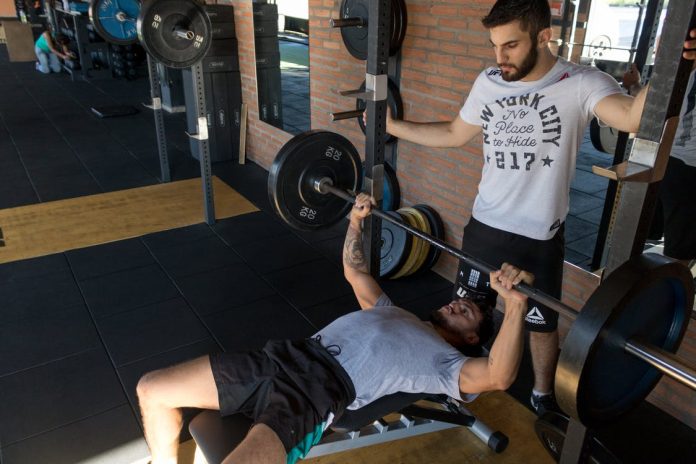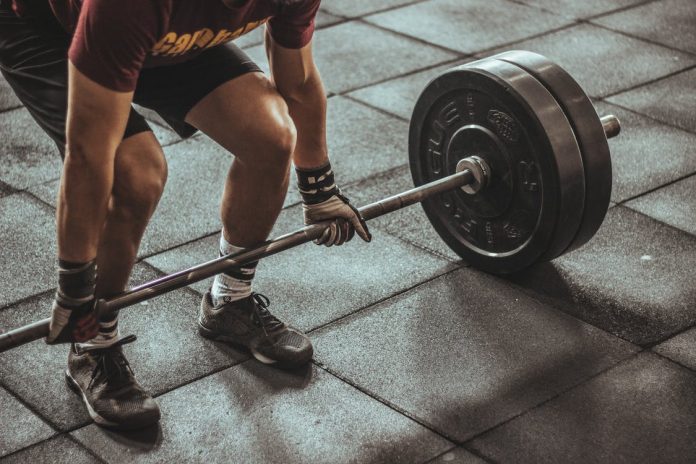
Table of Contents
Gaining muscle mass is not as easy as it seems. Many will suggest you increase your protein intake, eat more chicken and eggs, and include dairy products in your daily menu.
It’s true that you really need proteins so you can exercise properly and boost muscle gain.
Muscle growth is the result of a perfect balance between diet and exercise. In short, if you’re doing muscle-building exercises and following up with the right foods, you can expect to gain 0.5 to 2 pounds per month in muscle alone. In different people, this can vary and go up to 4 pounds maximum during a month. However, the key factors depend only on your decisions and the lifestyle you practice.
It often happens that beginners in the first stages manage to gain more muscle mass, and in the following months establish a constant balance of about 1-2 pounds every month. In fact, it’s the same with weight loss. The beginning is easy and gives hope and motivation, and later when stagnation occurs, many give up. The same thing happens with muscle mass.
But above all, the most important thing is to have realistic expectations of what you want to achieve.
The growth of muscle tissue is not entirely dependent on exercise and diet. Of course, there are additional factors, such as your health condition, previous lifestyle, genetics, habits, etc.
There are three interesting theories about increasing muscle mass, and now we will explain their essence:
1. Beginners can gain 2-4lbs or 2kg in the first month

We all know that the best results are achieved at the very beginning. First of all, it is about expelling excess water and stabilizing fatty tissues. By doing so, first, visually larger muscles are obtained, and then their building begins.
But in the second month, one pound per week is something that is difficult to achieve, so you need to establish realistic expectations, especially if you are not using supplements that would accelerate the increase in muscle mass.
Of course, the expectations are based on the assumption that you train at least four times a week and consume calories according to your body type.
2. Resistance training is effective for everyone

Resistance exercises are ideal for long-lasting results in both men and women regardless of their age. This is encouraging for anyone who loves this type of training. Therefore, do not exclude weightlifting from your fitness plan.
3. Slow progress is great progress

We all know that quick and instant results disappear in even less time. The reason for that is that we are working on short-term solutions, which do not bring any further benefit to us. Even professional lifters do not set unrealistic expectations and are aware that the secret of a constant result lies precisely in consistency and persistence.
Does protein help you gain muscle mass?

Proteins are always associated with bodybuilding and muscle growth. According to MusclePlus, it’s always a good idea to include more protein in your diet and exercise plan, whether it comes from food or a variety of protein supplements.
There are many scientific studies that prove that protein intake has a positive effect on increasing muscle mass. With the help of protein supplements, you also improve the strength of the muscle itself.
Why do people use protein supplements?

The amounts needed for rapid building and achieving exceptional results cannot be compensated by nutrition. These are huge amounts of food that no one can eat. Therefore, supplements replace a huge amount of protein and with regular exercise and building, the desired effect on the growth of muscle mass is achieved.
How does the process of muscle growth actually take place?

When you exercise, you use more force, that is, you tighten the muscles to the point of causing trauma, that is, tearing the muscle fibers. This sounds worse than it really is because we do the same thing every day, but at low to moderate intensity, to keep our muscles functional.
In fact, if we do not inflict these traumas with daily activities, the muscles atrophy and weaken.
But with increased physical activity, muscles are constantly renewed and a larger volume is achieved. As long as you’re exercising, you’re inflicting trauma, and while you’re resting, protein from food and supplements helps you recover faster. It is actually called hypertrophy because the volume of the muscle itself grows, using protein as an energy source. In fact, the whole process comes down to violently tearing the muscles and stimulating their rapid recovery.
That’s why muscle pain actually exists every time you exert more effort. The pain is the result of the muscle fibers trying to reattach themselves, but instead, the connective cells multiply, and the mass of the muscle increases.
People who do physical work all the time have strong and prominent muscles, which is not the case for those who are constantly in the office and sit in a chair all day. The reason is precisely the process of trauma and recovery that we described earlier.
The diet must be balanced

We have mentioned proteins several times in this article. But this does not mean that other nutrients are not important. Of course, it is good if you consume complex carbohydrates and healthy fats. That’s why your diet should also include legumes, sweet potatoes, whole grains, dairy products, nuts, avocados, and seafood.
Conclusion
An average of about 1-2 pounds of muscle mass is only an indication, not a rule. For everyone, this process takes place individually. There are additional factors that influence the increase in muscle mass, such as exercise habits, diet, genes, age, and lifestyle.
It is best if you do not have too high expectations, that is, to be satisfied with a consistent result. Such results are also the healthiest for you and do not put you at risk for health problems.
Now you know the most important aspects of muscle gain, and you can plan the whole process alone. Do it smartly, so you can maintain durable results.
















